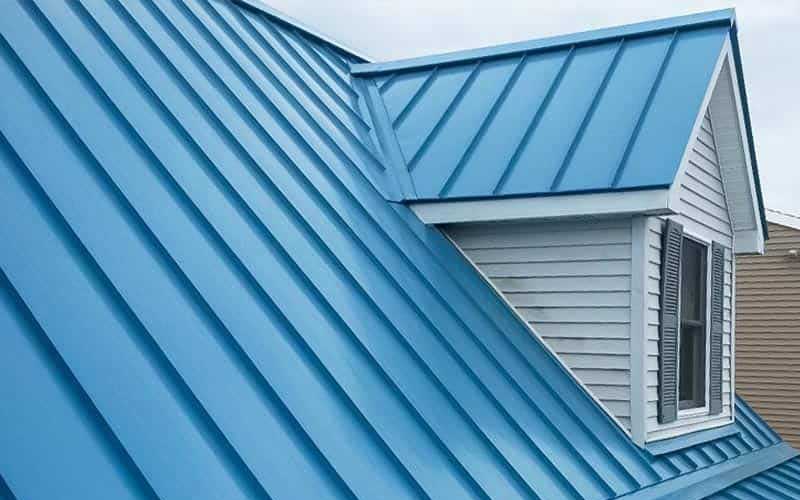Buying a home is one of the largest purchases a person will make in their lifetime. As a first time home buyer, it can feel like an overwhelming decision to make. In the same sense, this is an extremely exciting time as you can finally decide what you want in a home.
June is Home Ownership Month, and as a new home owner it is the perfect time to reflect on what you are looking for in a home and how much work you are willing to do on it. Remember, this is an investment as much as it is a place to live. No matter what your budget is, you should be doing your best to ensure that your home is a lucrative investment. As you set out on your home buying journey, try to remember some of these maintenance tips to save you from financial and logistical headaches in the long run.
Identify Your Wants and Needs
Your buyer profile should directly show you how much maintenance your prospective home may need. If you have a lower budget, or are comfortable with buying a home that needs work, then you likely will want a fixer-upper.
Other areas that will impact how much maintenance your prospective home will have are things like location and style of home. Houses in high risk areas, such as the coastline, will need more annual maintenance to keep the house in good condition. The same can be said for the type of home. An old Victorian age home will likely need more maintenance than a brand new home.
As you set your criteria for a prospective home, it will be wise to check the current housing market to make sure that there are homes for sale that check all of your boxes. Currently, the housing market is moving at a hyperfast speed. For buyers, this means that houses are getting sold as soon as they hit the market and often for more than they are valued for. It would be wise to meet with a real estate agent to guarantee that your buying experience goes smoothly and that you get a house that you love.
Save Time With an Inspection
After you have found your ideal home it may be time to think about getting the home professionally inspected. While not required, a home inspection is a great way to identify issues quickly and efficiently throughout the home. A home inspection is generally the last step buyers will take before finalizing the purchase of a home, and for good reason.
After the home inspector conducts their review of your home, you should receive a thorough report of all their findings. Make sure that you read through and completely understand each and every critique they have. If you do not understand one of their recommendations, make sure to reach back out and ask for a clarification.
When reading your report, pay extra close attention to any reports of hazardous materials in your home. Issues like mold, lead paint, lead pipes, and asbestos are all things that will require a professional to take care of. These are not everyday maintenance items you can handle alone.
Start On Your Maintenance Checklist
After a home inspection, you should have a comprehensive idea of what your new home needs to have fixed up. Even the newest houses will require frequent maintenance. Some things will be easy for you and your family to handle, such as changing out a furnace filter, while others may need to be taken care of by a professional.
It would be wise to start a list of things that you want to improve in your home. Break the list down into two categories, one for you to do, and one for a professional to take care of. Upon moving in, here are some areas of concern that you should be able to fix up right away:
-
Faulty Sump Pumps – if your home has a basement, or a floor below the water table, having a sump pump is a good idea. Make sure that the pump is in working condition in case of heavy storms; if it isn’t, your local hardware store should be able to help you get the right one for your home.
-
Clogged Lint Vents – while most people know to clean the lint trap in a dryer machine, not too many know that they should be cleaning the lint vents where the dryer exhaust goes. Failure to clean a dryer is the leading cause of dryer fires.
-
Full Gutters and Downspouts – nobody likes climbing on the roof to clear a gutter out, but doing it on an annual basis will help prevent gutter collapse and roof damage down the road.
-
Mildewy Bathrooms – the bathroom is one of the most troublesome places to maintain in a home. Moisture from the shower can cause mold and mildew buildup if you do not regularly re-caulk and re-grout the bathroom.
These are some easy tasks that you can tackle right away when you move into your new home. Just remember, these tips should not be a one time ordeal. You should be consistently checking and maintaining your home for years to come.
Go With the Pros
There will be some maintenance issues that cannot be fixed on your own. For these issues, it is best to go with a professional contractor or business that knows exactly what they are doing.
Windows for instance, can cause major problems if they are not properly installed or sealed. A cracked or faulty window can lead to energy inefficiency, water damage, and pest issues. Installing windows can be a costly and time consuming ordeal, and if you don’t know what you’re doing, you can cause more problems than you had before.
If you move into a home and have window issues, it would be best to bring in a professional. If you need replacement windows, look no further! For 65 years we have been helping homeowners with their window and exterior home needs. If you are interested, feel free to request a quote today.
Besides windows, other areas where you likely would want a professional to come in are:
-
Roof Issues – a sagging or leaky roof can be a major cause of concern. Professional roofers will be able to identify the root of your problem and correct it for you in a timely manner.
-
Foundation Problems – the foundation of your home can directly affect every aspect of your home. Signs of foundation problems include sagging floors, wall cracks, and exterior cracks.
Looking online for local contractors is a great first step to take when you want to maintain your home, but feel that the problem may be over your head. On top of that, get familiar with your local hardware store. They often staff knowledgeable individuals who can help you with your DIY and other similar projects to save time and money.
—
After you fix the initial issues with your home, there still will be maintenance you will have to keep up with for years to come. Like taking a car to get its oil changed, your house will have minor issues that arise from time to time, but tackling the major issues upfront will help mitigate larger problems down the road.






